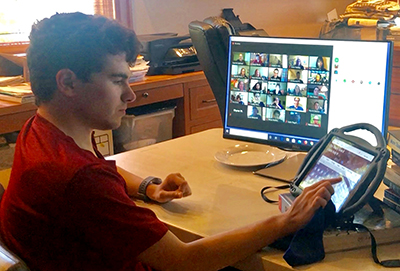
I doubt if anyone hosting a meeting or delivering a presentation intentionally excludes those who have a right to be there. However, every day, meeting hosts and presenters erect barriers to some people, including those with disabilities. Several examples follow:
- A person who is blind or connecting to a meeting by phone cannot effectively follow a presentation unless the presenter verbally describes critical content on slides.
- A person who is not blind but has a visual impairment may have difficulty reading content on a slide if the text is presented in a small font that is not sans serif on a background that is cluttered.
- An individual who is an English language learner or is deaf or hard of hearing may require captioning or a sign language interpreter.
- A person who needs more time to process the content will be disadvantaged unless a video recording is available.
- A person who is blind and using a screen reader to read aloud content in digital documents, slides, and websites will not be able to access information unless the materials are created in a text-based format that is structured to work well with their technology.
- An individual with a reading-related disability and using text-to-speech software to read aloud content presented in written materials will be disadvantaged in reading them if they are not in a text-based format.